“Sky is the Limit”: Rodolphe Saadé’s Lesson at HEC Mornings
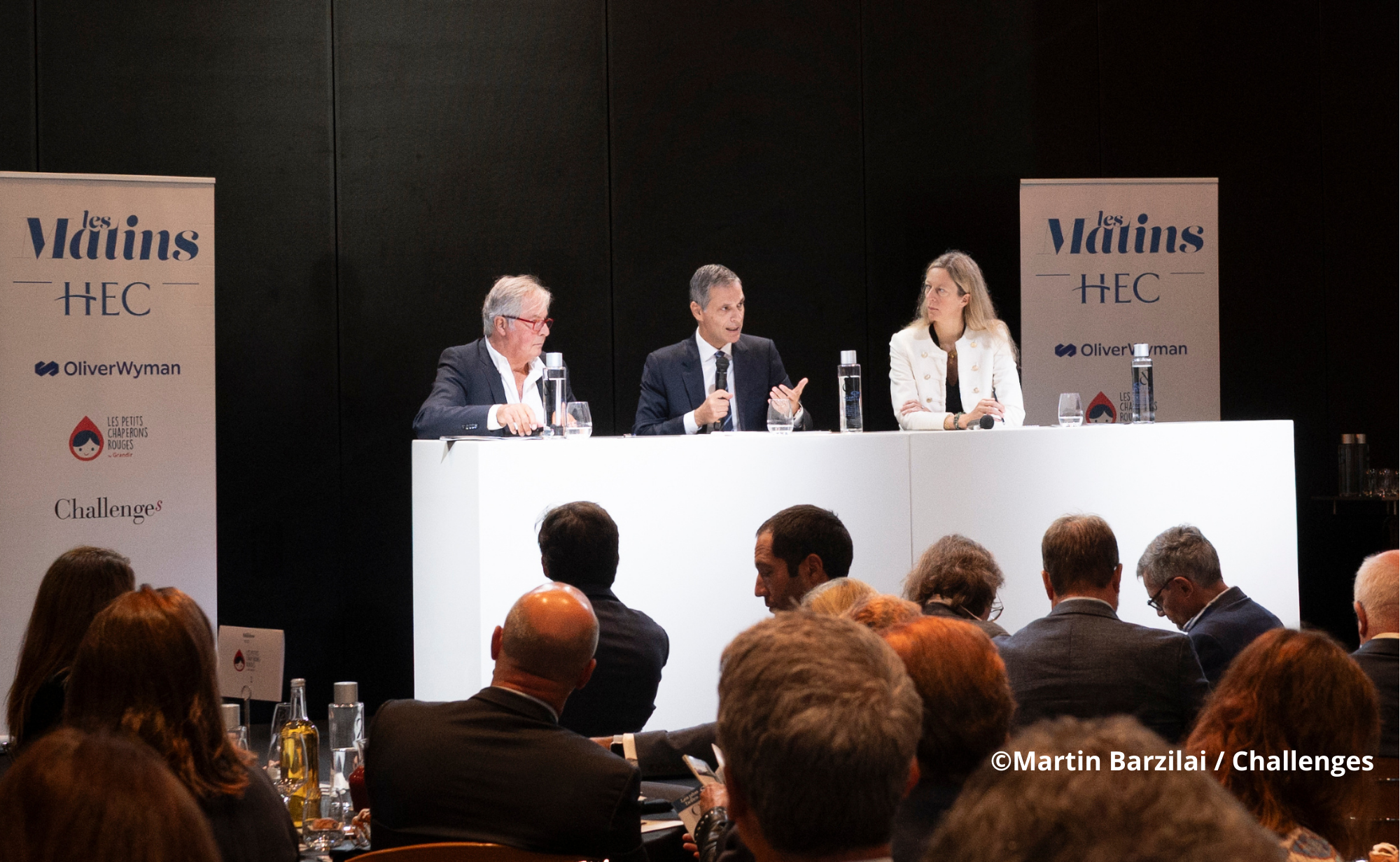
At the 344th “Matin HEC,” the CEO of CMA CGM shared his vision of international trade shaken by geopolitics and the ecological transition. Balancing loyalty to Marseille, strategic diversification, and global ambition, this rarely outspoken leader answered questions candidly—first from Vincent Beaufils, then from the audience.
Unsurprisingly, the event—introduced by Hortense de Roux (H.05), President of HEC Alumni—was a full house. On Tuesday, September 16, Rodolphe Saadé, the emblematic head of CMA CGM, came to the Pavillon Vendôme to take questions from Vincent Beaufils (H.75), editor-in-chief of Challenges magazine, and from the audience—which included explorer Jean-Louis Etienne, a Lebanese scholarship student funded by CMA CGM, and other alumni from the shipping industry and beyond.
“The best thermometer of the world economy is how full our ships are.”
In a calm yet firm tone, Rodolphe Saadé shared his reading of the international landscape. His container ships sail across every ocean, and by how full they are, he gauges whether trade is slowing down or picking up. According to him, 2025 will be a “decent year,” with global growth on the horizon. CMA CGM’s vessels are currently “very full,” even if shipping routes have changed. “Before, it was mainly China to the United States. Today, flows increasingly originate from Vietnam, Malaysia, or Indonesia.”
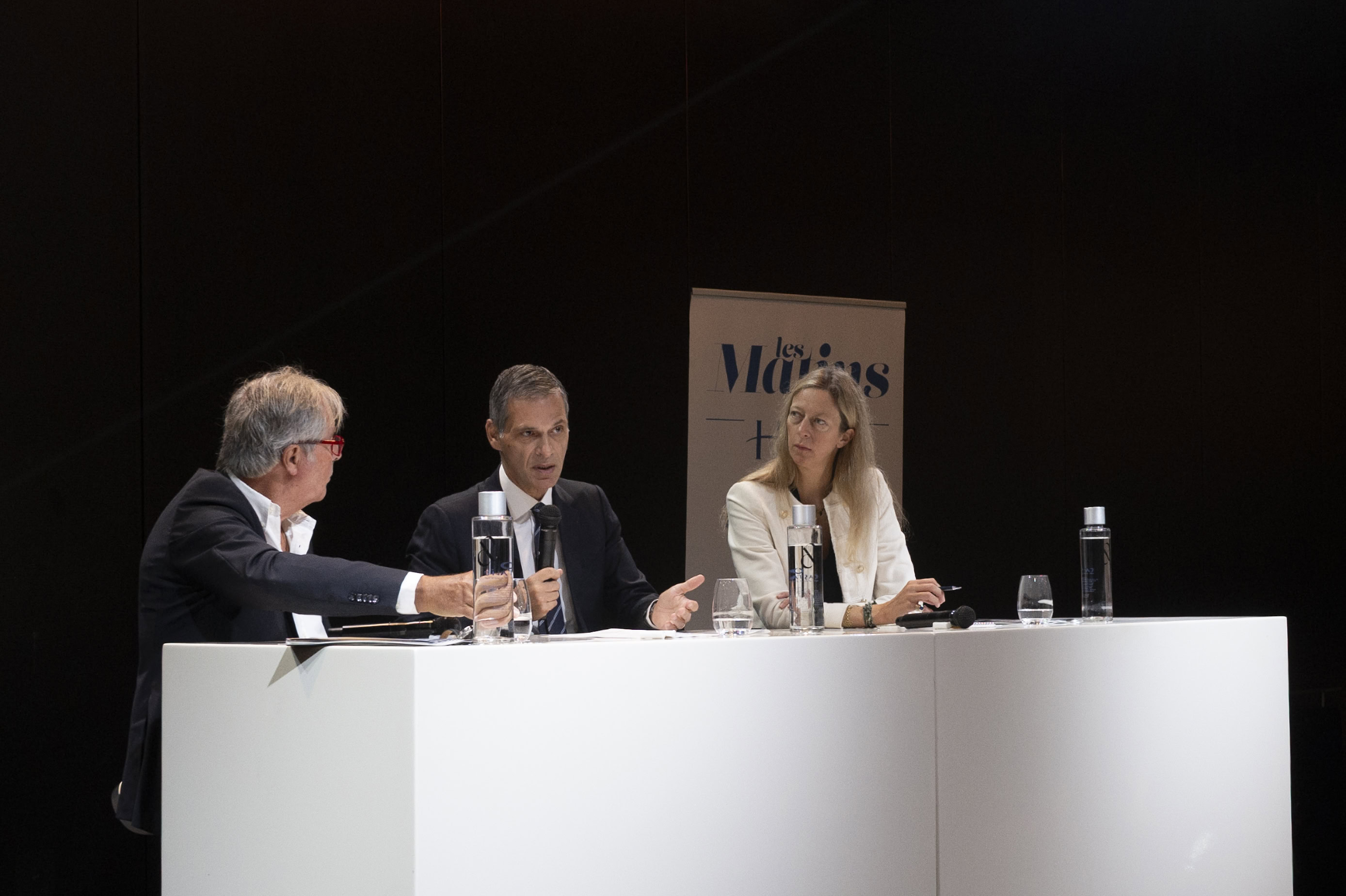
©Martin Barzilai / Challenges
The world’s third-largest shipping company, present in 160 countries, operates 650 vessels with another 150 on order. The ambition is clear: to strengthen its position and overtake Maersk, becoming the world’s number two player behind MSC. To achieve this, no expense is spared. “What we earn, we reinvest. Eighty-five percent of profits go back into the company,” explains the maritime transport enthusiast, who knows by heart all 250 shipping lines operated by the Group.
This strategy has notably translated into more than €18 billion invested in greening the fleet. Liquefied natural gas (LNG), which reduces carbon emissions by 20%, is the first step. Methanol cuts emissions by 60%, but it is two to five times more expensive than conventional fuel. “It doesn’t make financial sense. For now, customers are not ready to pay for it.” Yet the commitment is clear: zero carbon by 2050.
Diversification is the other cornerstone of the strategy. The group, which employs 160,000 people and is not publicly listed, launched CMA CGM Air Cargo in 2021. From its initial four planes, the fleet will grow to 13 by 2027. “During Covid, many clients suffered from delays on the Asia-Europe route. We found a solution with air cargo,” says the Beirut-born executive. What began as an emergency measure has now become permanent. Following the acquisition of CEVA in 2019, the Group took a decisive step in logistics integration with the purchase of Bolloré Logistics in 2024.
The businessman is also keeping a close eye on the latest advances in generative artificial intelligence. His Group invested €100 million in Mistral AI, the French start-up behind Le Chat. “AI can help our teams optimize pricing and improve quotations,” he notes. CMA CGM also fosters innovation through Zebox, the incubator founded in Marseille and now operating in Arlington (USA), Singapore, Manchester, Abidjan, and Guadeloupe.
This strong focus on innovation is anchored in a family history deeply tied to Marseille. Jacques Saadé, his father, laid the foundations of CMA CGM there in 1978 after fleeing Lebanon’s civil war. Forty-five years later, the company’s global headquarters remain in the Phocaean city. Just last year, President Emmanuel Macron inaugurated Tangram, CMA CGM’s center of excellence for training and innovation, designed by architect Jean-Michel Wilmotte.
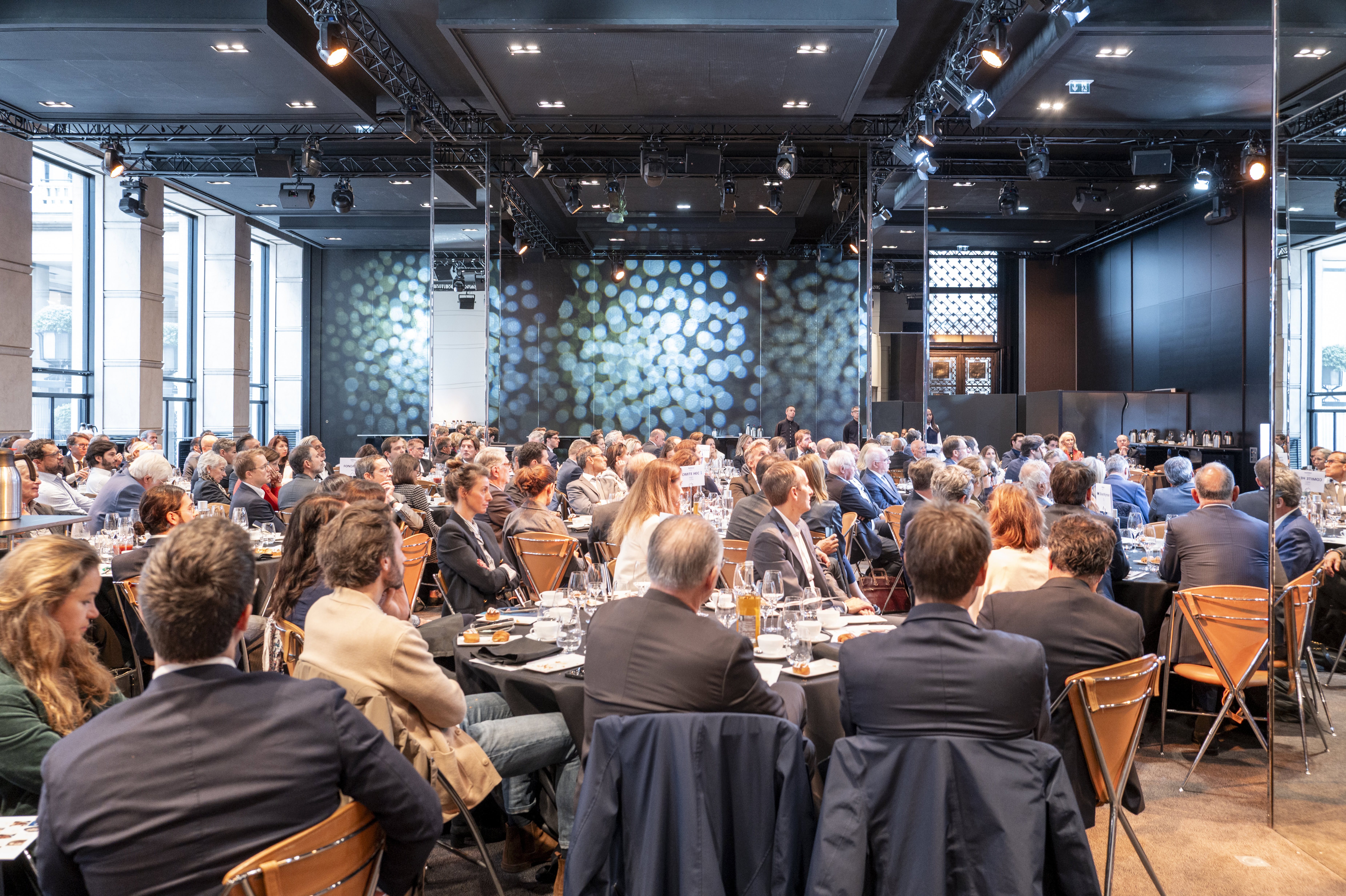
©Martin Barzilai / Challenges
Since 2022, Rodolphe Saadé has expanded into media. After acquiring La Provence—a logical step for a Marseillais—the 55-year-old executive bought the BFM-RMC group from Patrick Drahi for €1.5 billion. He also acquired La Tribune, the online outlet Brut, and the TV channel Chérie 25, soon to become RMC Life. “I believe strongly in media. Who else will invest in a press that loses money, if not entrepreneurs?” he defends. He recently appointed Claire Leost (H.99), former head of Prisma Media, to lead CMA Médias. His foray extends to cinema as well, with a 20% stake in Pathé through Merit, the family holding company. “I admired what Jérôme Seydoux accomplished,” he confides.
With more than 20% of revenues generated in the United States, the shipping magnate keeps a close eye on American politics. At the Matin HEC, Saadé recalled his meeting at the White House with Donald Trump, where he announced a massive $20 billion investment over four years.
Shipyards also illustrate how business and politics intertwine. CMA CGM builds vessels in China and South Korea but is now preparing to produce ships in India, which has become cost-competitive. “Many countries are seeking reindustrialization. India is now credible.” Another example: Panama’s port terminals. When a Hong Kong company tried to sell its 43 terminals to an investment fund, Beijing vetoed the deal. “It’s a good example of the importance of geopolitics,” observes the Marseille-born CEO.
French politics eventually caught up with the discussion when the proposed “Zucman tax” on great fortunes was mentioned. Saadé reminded the audience that he had already accepted an exceptional €500 million contribution. “I pay significant taxes in France, I don’t need lessons in patriotism. But my Asian and European competitors don’t face this type of contribution. My playing field isn’t limited to France—it’s the world.” He also pointed out that he repatriated the family holding company from Lebanon to France.
In this family-owned business, his commitment remains total: “Everything that concerns CMA CGM, I take to heart. Maybe too much.” Asked by an HEC student what advice he would give to a young tech entrepreneur, he offered a curious double response: “Be humble, sky is the limit.” A phrase that neatly sums up the mix of reserve and ambition embraced by the Marseille leader.
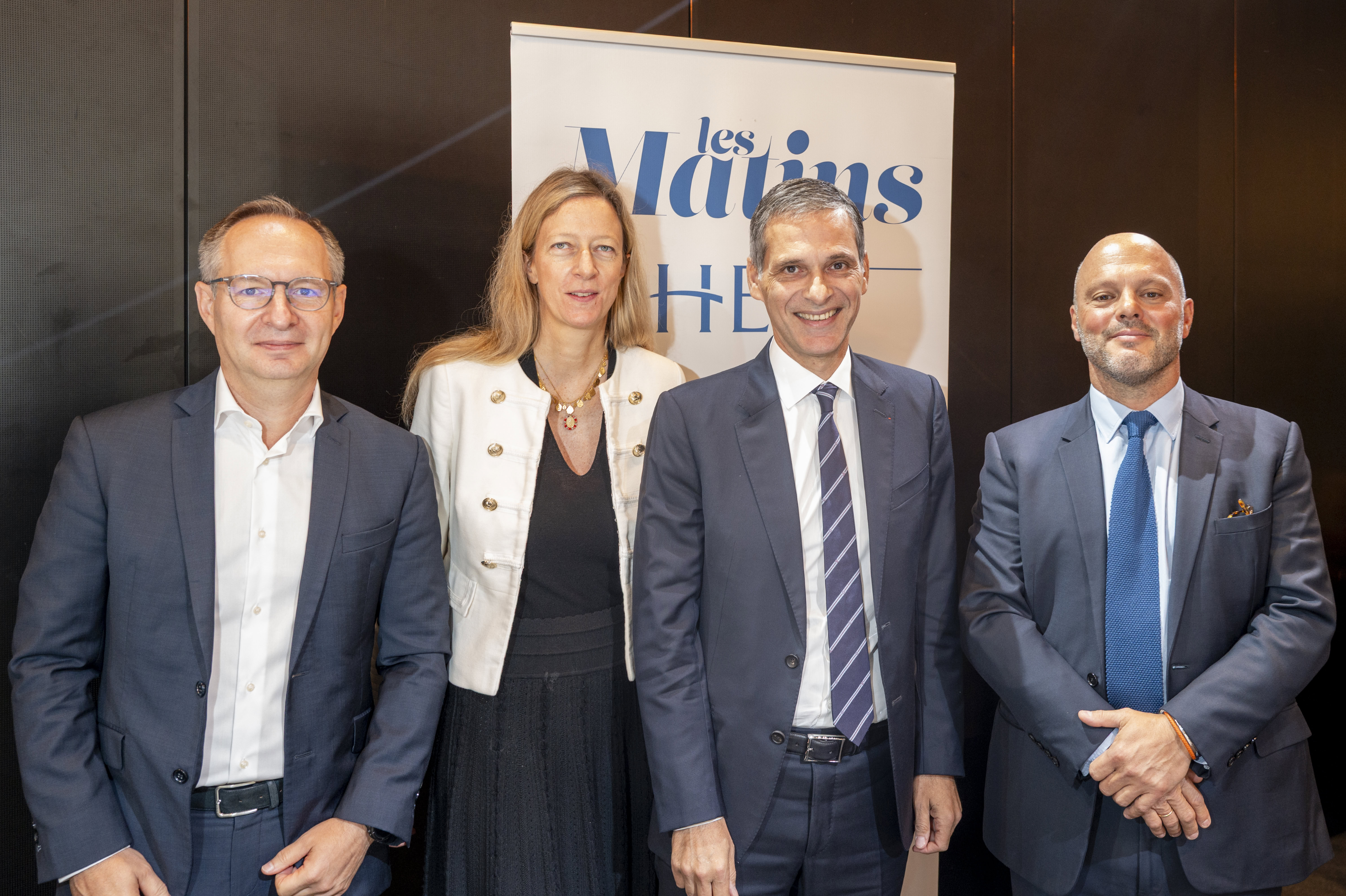
©Martin Barzilai / Challenges
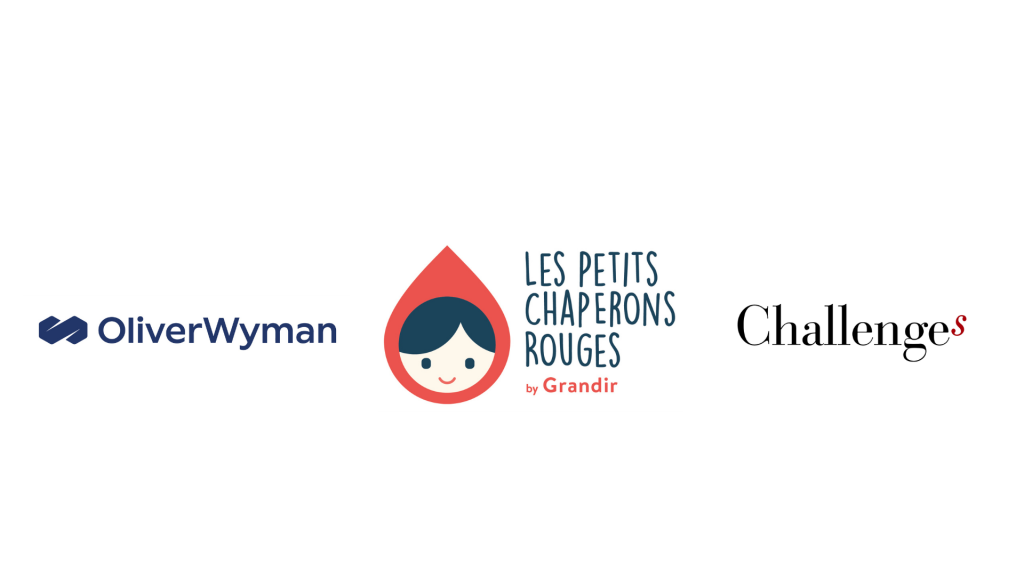
Published by Thomas Lestavel

